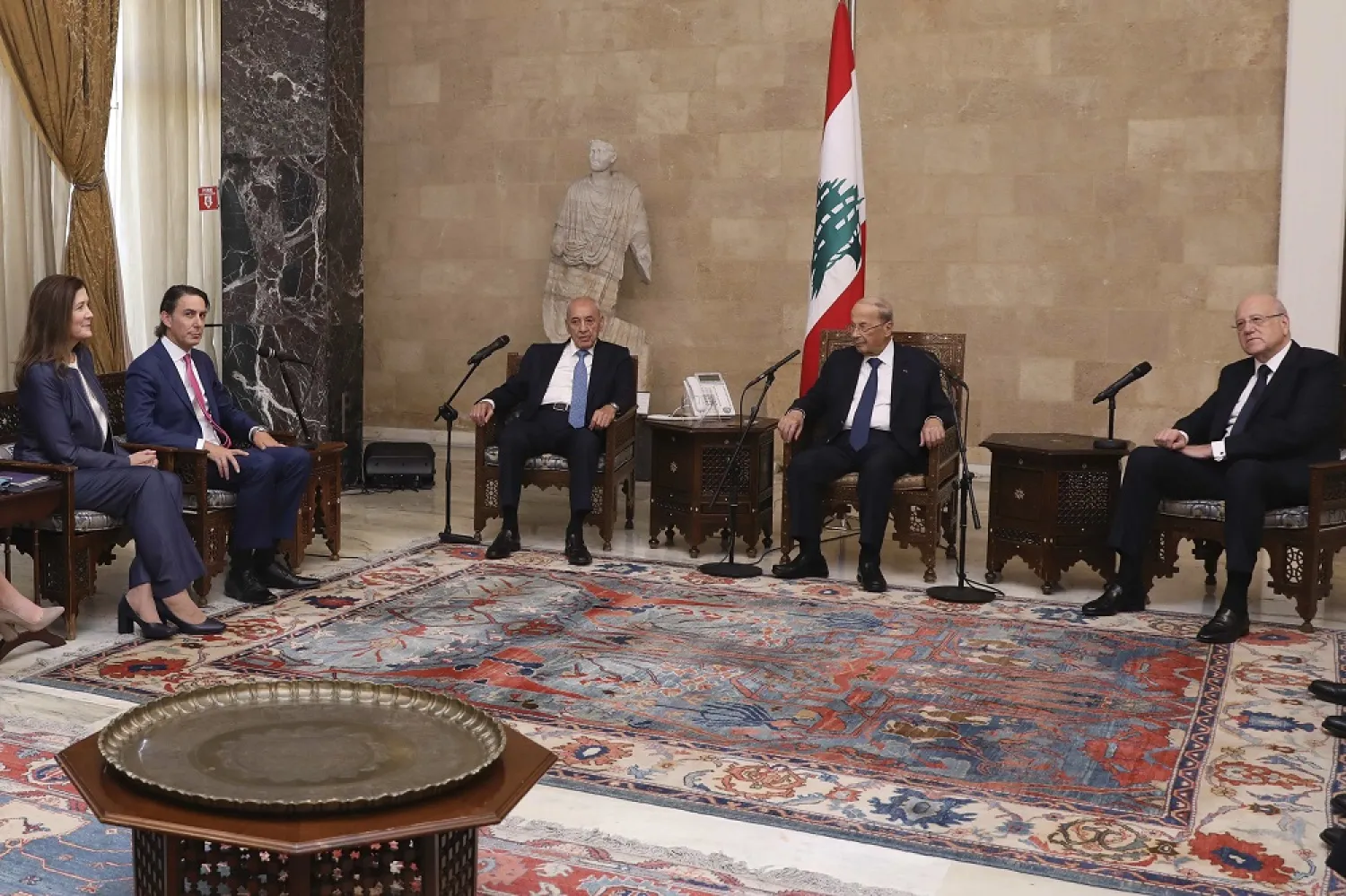Hezbollah dampened the positive mood that prevailed during US Envoy for Energy Affairs Amos Hochstein's meeting with Lebanese officials over the demarcation of the marine border with Israel, by criticizing Washington and accusing it of preventing Beirut from extracting its offshore gas and oil.
Hochstein had paid a two-day visit to Lebanon on Sunday and Monday where he met with senior officials over the demarcation of the contested border.
At the conclusion of his trip, he said he remained optimistic about making progress towards a deal and looked forward to returning to the region to make a "final arrangement".
He then traveled to Tel Aviv by land through the Naqoura border crossing in Lebanon.
A senior Lebanese government source said Hochstein had passed on an Israeli proposal that provided Lebanon with "nothing south of Line 23" - a maritime line that was originally Lebanon's demand during negotiations.
Additionally, Israel would allow Lebanon to explore the entire Qana Prospect, an area with the potential to hold hydrocarbons which crosses beyond Line 23.
Lebanon informed Hochstein it was seeking guarantees it could commence exploration in its southern Block 9 in an area already awarded to a consortium led by French oil major Total as soon as an agreement is signed, the source said.
The United States in 2020 stepped up long-running efforts to mediate an agreement. Tensions over the issue escalated in June as Israel moved towards extracting hydrocarbons while Lebanon's exploration process remained paused.
Lebanon and Israel are located in the Levant Basin, where a number of big sub-sea gas fields have been discovered since 2009. Israel already produces and exports gas.
The Iran-backed Hezbollah party has threatened military action if Lebanon is prevented from exploiting what it deems to be its offshore rights. But it has also said it will respect the decision of the Lebanese government.
Hezbollah kept up its rhetoric by accusing the US of preventing Lebanon for 12 years from exploiting its offshore wealth.
Hezbollah MP Hussein al-Hajj Hassan said the US has been barring Lebanon from "extracting its oil and gas when it is in most need of them to help it overcome its economic crisis."
"By siding with the Israeli enemy, the Americans have prevented European companies from drilling in Blocks 4 and 9," he alleged.
Hezbollah’s opponents dismissed the criticism.
Democratic Gathering MP Marwan Hamadeh said: "We are presented with a rare opportunity to demarcate the border. This opportunity may not happen again for reasons that go beyond [Hezbollah leader] Hassan Nasrallah’s threats."
The Americans presented advanced ideas about the demarcation and have improved Lebanon’s conditions, he added.
Hochstein "did not bring maps with him, but he brought ideas," continued Hamadeh.
He informed Lebanese officials that Israel was ready to discuss offering the entire Qana Prospect in return for Lebanon to offer concessions related to Line 23.
Lebanon demanded its full rights in Blocks 8, 9, and 10 and Qana , said the MP.
"The devil is in the details" regarding Lines 23 and 29, he added.
Moreover, Hamadeh ruled out the possibility of a war erupting over the border "from now until the end of August."
"We must seize the opportunity provided to us to demarcate the border. This is the first time the mediation and Lebanon are this serious. Israel, Europe and the world are in need of gas," he stressed.









